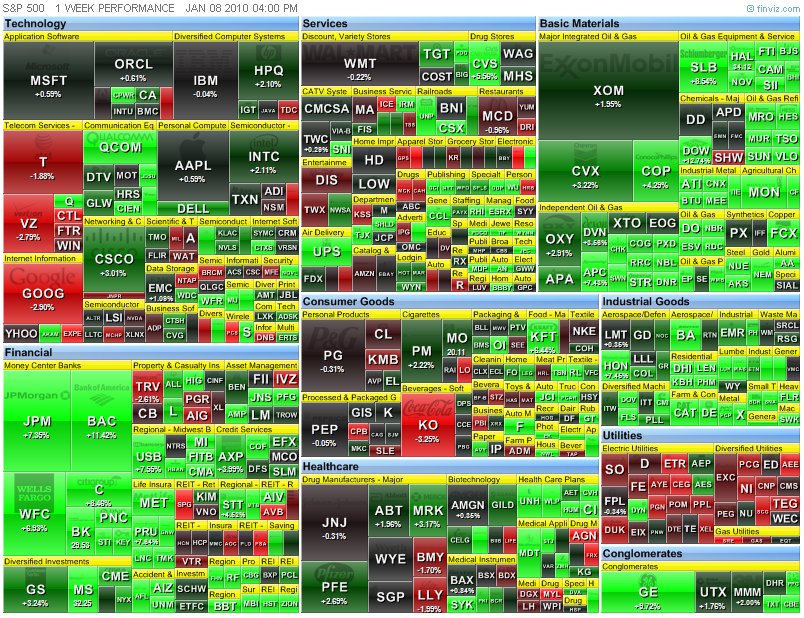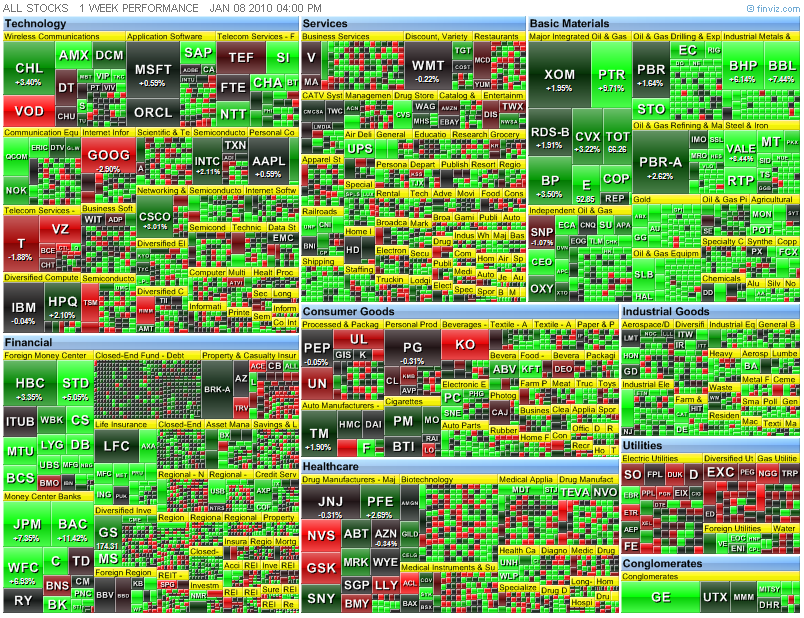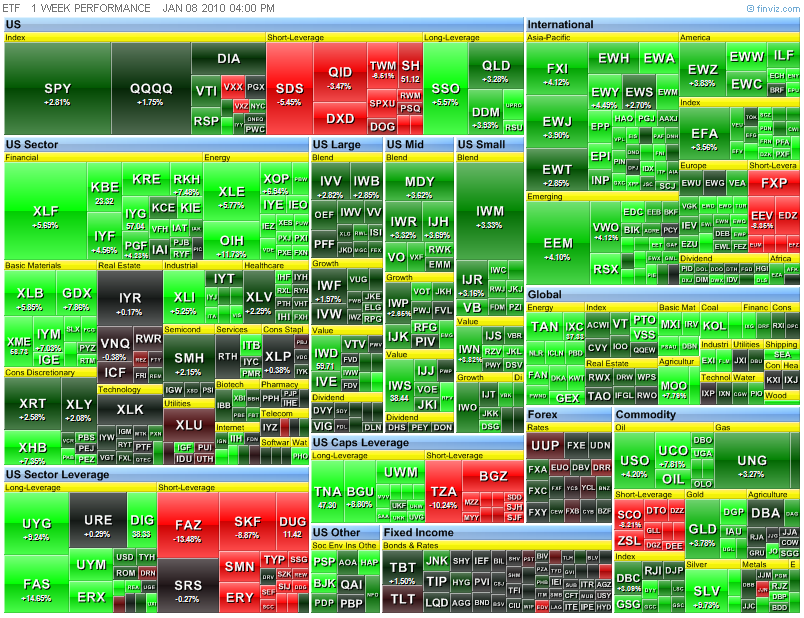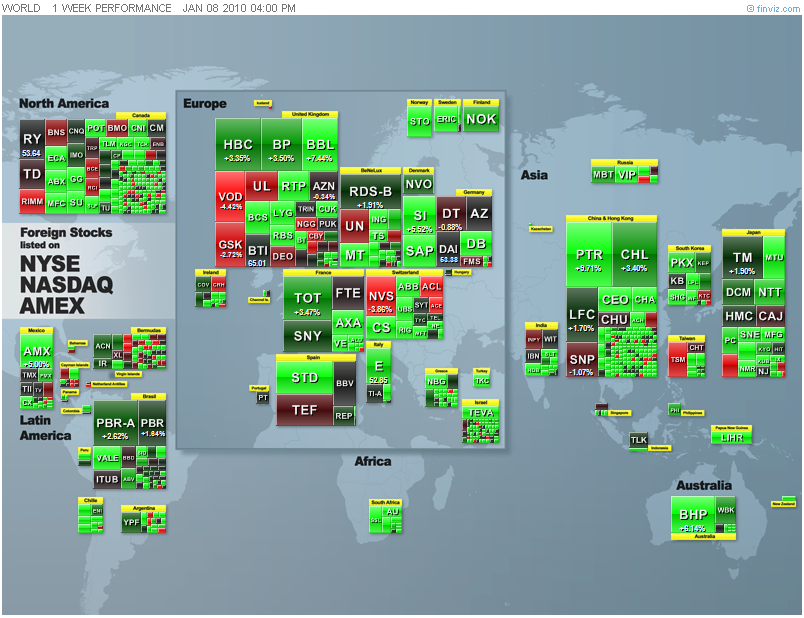Using quantitative analysis to buy/sell stocks takes the emotions out of trading as picks are generated by advanced computer models, as opposed to human judgement which is more likely to be flawed, bias, or flat out wrong. Not quite as advanced a system as the big institutions but unquestionably many steps ahead of the individual trader. The individual has many factors working against him as institutions attempt to manipulate him out of his shares. Here we will use quantitative methods to try to beat the market, by trading with the market makers, and not against them, as the individual invester often is caught on the wrong side of the trade.
More....
Quantitative analyst
From Wikipedia, the free encyclopedia
A quantitative analyst is a person who works in finance using numerical or quantitative techniques. Similar work is done in most other modern industries, but the work is not called quantitative analysis. In the investment industry, people who perform quantitative analysis are frequently called quants. See List of quantitative analysts.
Although the original quants were concerned with risk management and derivatives pricing, the meaning of the term has expanded over time to include those individuals involved in almost any application of mathematics in finance. An example is statistical arbitrage.
History
Quantitative finance started in the U.S. in the 1930s as some astute investors began using mathematical formulae to price stocks and bonds.
Harry Markowitz's 1952 Ph.D thesis "Portfolio Selection" was one of the first papers to formally adapt mathematical concepts to finance. Markowitz formalized a notion of mean return and covariances for common stocks which allowed him to quantify the concept of "diversification" in a market. He showed how to compute the mean return and variance for a given portfolio and argued that investors should hold only those portfolios whose variance is minimal among all portfolios with a given mean return. Although the language of finance now involves Ito calculus, minimization of risk in a quantifiable manner underlies much of the modern theory.
In 1969 Robert Merton introduced stochastic calculus into the study of finance. Merton was motivated by the desire to understand how prices are set in financial markets, which is the classical economics question of "equilibrium," and in later papers he used the machinery of stochastic calculus to begin investigation of this issue.
At the same time as Merton's work and with Merton's assistance, Fischer Black and Myron Scholes were developing their option pricing formula, which led to winning the 1997 Nobel Prize in Economics. It provided a solution for a practical problem, that of finding a fair price for a European call option, i.e., the right to buy one share of a given stock at a specified price and time. Such options are frequently purchased by investors as a risk-hedging device. In 1981, Harrison and Pliska used the general theory of continuous-time stochastic processes to put the Black-Scholes option pricing formula on a solid theoretical basis, and as a result, showed how to price numerous other "derivative" securities.
Education
Quants often come from physics, engineering or mathematics backgrounds rather than finance related fields, and quants are a major source of employment for people with physics and mathematics Ph.D's. Typically, a quant will also need extensive skills in computer programming.
This demand for quants has led to the creation of specialized Masters and PhD courses in mathematical finance, computational finance, and/or financial reinsurance. In particular, Masters degrees in Mathematical Finance, financial engineering and financial analysis are becoming more popular with students and with employers. London's Cass Business School was the pioneer of quantitative finance programs in Europe, with its MSc Quantitative Finance as well as the MSc Financial Mathematics and MSc Mathematical Trading and Finance programs providing some leading global research. Carnegie Mellon's Tepper School of Business, which created the Masters degree in financial engineering, reported a 21% increase in applicants to their MS in Computational Finance program, which is on top of a 48% increase in the year before.[1][when?] These Masters level programs are generally one year in length and more focused than the broader MBA degree.
Front Office Quant
Within Banking, quants are employed to support trading and sales functions. At the very simple level Banks buy and sell investment products known as Stocks (Equity) and Bonds (Debt). They can gain a good idea of a fair price to charge for these because they are liquid instruments (many people are buying and selling them) and thus they are governed by the market principles of supply and demand – the lower your price the more people will buy from you, the higher your price the more people will sell to you. Over the last 30 years a massive industry in derivative securities has developed as the risk preferences and profiles of customers have matured. The idiosyncratic, customised nature of many of these products can make them relatively illiquid and hence there are no handy market prices available. The products are managed, that is, actualised, priced and hedged, by means of financial models. The models are implemented as software and then embedded in front-office risk management systems. The role of the quant is to develop these models.
Mathematical and statistical approaches
According to Fund of Funds analyst Fred Gehm, "There are two types of quantitative analysis and, therefore, two types of quants. One type works primarily with mathematical models and the other primarily with statistical models. While there is no logical reason why one person can't do both kinds of work, this doesn’t seem to happen, perhaps because these types demand different skill sets and, much more important, different psychologies.[2]"
A typical problem for a numerically oriented quantitative analyst would be to develop a model for pricing, hedging, and risk-managing a complex derivative product. Mathematically-oriented quants tend to have more of a reliance on numerical analysis, and less of a reliance on statistics and econometrics. These quants tend to be of the psychology that prefers a deterministically "correct" answer, as once there is agreement on input values and market variable dynamics, there is only one correct price for any given security (which can be demonstrated, albeit often inefficiently, through a large volume of Monte Carlo simulations).
A typical problem for a statistically oriented quantitative analyst would be to develop a model for deciding which stocks are relatively expensive and which stocks are relatively cheap. The model might include a company's book value to price ratio, its trailing earnings to price ratio and other accounting factors. An investment manager might implement this analysis by buying the underpriced stocks, selling the overpriced stocks or both. Statistically-oriented quants tend to have more of a reliance on statistics and econometrics, and less of a reliance on sophisticated numerical techniques and object-oriented programming. These quants tend to be of the psychology that enjoys trying to find the best approach to modeling data, and can accept that there is no "right answer" until time has passed and we can retrospectively see how the model performed. Both types of quants demand a strong knowledge of sophisticated mathematics and computer programming proficiency.
One of the principal mathematical tools of quantitative finance is stochastic calculus.
According to a July 2008 Aite Group report, today quants often use alpha generation platforms to help them develop financial models. These software solutions enable quants to centralize and streamline the alpha generation process.[3]
Areas of Work
- Trading strategy development
- Portfolio optimization
- Derivatives pricing and hedging: involves a lot of highly-efficient (usually object-oriented) software development, advanced numerical techniques, and stochastic calculus
- Risk management: involves a lot of time series analysis, calibration, and backtesting
- Credit analysis
[img]finviz.com/image.ashx?dow&rev=633987385221870000[/img][img]finviz.com/image.ashx?nasdaq&rev=633987385221870000[/img][img]finviz.com/image.ashx?sp500&rev=633987385221870000[/img]
S&P500 1-Week Heat Map

All Stocks on US Exchanges 1-Week Heat Map

ETF 1-Week Heat Map

World Stocks 1-Week Heat Map

